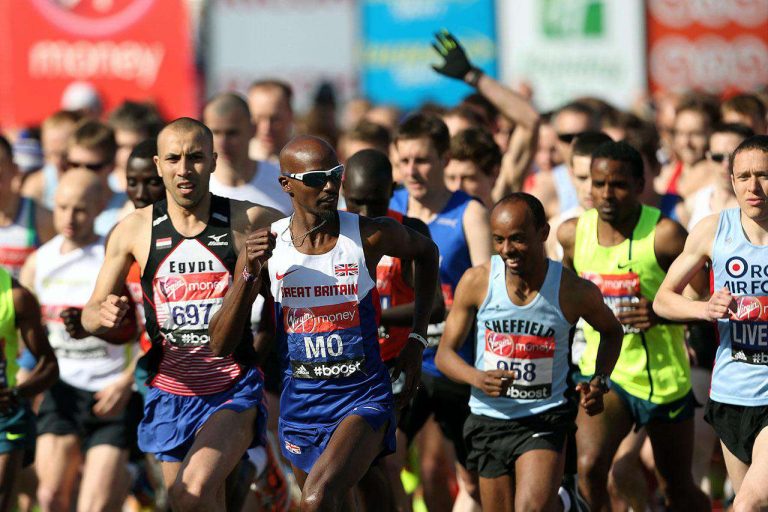The Race of My Life by Milkha Singh: Book Summary
The Race of My Life is the autobiography of Milkha Singh, India’s legendary sprinter, co-authored with his daughter Sonia Sanwalka. The book chronicles his journey from a traumatic childhood during the Partition to becoming a national sports icon. It offers a compelling narrative of resilience, discipline, and unwavering determination.
Who May Benefit from the Book
- Aspiring athletes seeking inspiration and guidance.
- Individuals interested in personal development and overcoming adversity.
- Readers keen on Indian history and the impact of Partition.
- Fans of autobiographies and real-life success stories.
- Educators and mentors looking for motivational material.
Top 3 Key Insights
- Resilience Amidst Tragedy: Milkha Singh transformed personal loss during the Partition into a driving force for success.
- Discipline as a Foundation: His time in the Indian Army instilled a discipline that became crucial in his athletic achievements.
- Single-Minded Dedication: An unwavering focus on training and self-improvement propelled him to international acclaim.
4 More Lessons and Takeaways
- Turning Pain into Purpose: Witnessing the horrors of Partition, including the loss of his family, Milkha channeled his grief into a relentless pursuit of excellence.
- Opportunity through Perseverance: Despite multiple rejections, his persistence led to acceptance into the Indian Army, where his talent was nurtured.
- Breaking Barriers: His victories in the 1958 Asian and Commonwealth Games marked significant milestones for Indian athletics on the global stage.
- Legacy Beyond the Track: Post-retirement, Milkha Singh dedicated himself to sports administration, aiming to inspire and develop future generations of athletes.
The Book in 1 Sentence
An inspiring journey of a man who rose from the ashes of tragedy to become India’s iconic “Flying Sikh.”
The Book Summary in 1 Minute
The Race of My Life narrates Milkha Singh’s transformation from a Partition refugee to a celebrated athlete. Facing immense personal loss, he found purpose in running, with the Indian Army providing the structure and support he needed. His dedication led to historic wins in international competitions, though the elusive Olympic medal remained a poignant regret. Beyond his athletic career, Singh’s commitment to nurturing young talent and his enduring legacy continue to inspire.
The Book Summary in 7 Minutes
Milkha Singh’s autobiography offers a profound insight into the life of one of India’s most revered athletes. His story is not just about sports but about overcoming insurmountable odds through sheer willpower and dedication.
Early Life and the Impact of Partition
Born in Govindpura, Punjab (now in Pakistan), Milkha Singh’s early life was marred by the traumatic events of the 1947 Partition. He witnessed the brutal killing of his parents and siblings, a tragedy that forced him to flee to India. These harrowing experiences instilled in him a resilience that would define his character.
Struggles in Post-Partition India
Arriving in Delhi as a refugee, Singh faced poverty and homelessness. He engaged in petty crimes and was even imprisoned for traveling without a train ticket. His sister’s support and his own determination led him to seek a better life, culminating in his acceptance into the Indian Army after multiple attempts.
Discovery of Athletic Talent
Within the Army, Singh’s potential as a runner was recognized during a cross-country race. Finishing sixth among hundreds, he caught the attention of his superiors, leading to specialized training. This marked the beginning of his journey as a professional athlete.
Rigorous Training and Discipline
Singh’s commitment to training was unparalleled. He adhered to a strict regimen, often pushing his body to its limits. His day revolved around running, with little room for distractions. This discipline was instrumental in his subsequent successes.
International Achievements
Singh’s dedication bore fruit in the 1958 Asian Games, where he won gold in both the 200m and 400m events. The same year, he clinched gold in the 440 yards at the Commonwealth Games, becoming the first Indian to achieve this feat. These victories elevated him to national hero status.
The 1960 Rome Olympics
Despite being a favorite, Singh narrowly missed a medal in the 400m final at the Rome Olympics, finishing fourth. A momentary lapse in strategy cost him dearly, a regret he carried throughout his life.
The Title of “Flying Sikh”
In 1960, during a race in Pakistan, Singh defeated the country’s champion, Abdul Khaliq. Impressed by his performance, Pakistani President Ayub Khan dubbed him the “Flying Sikh,” a title that became synonymous with his identity.
Life Beyond Athletics
Post-retirement, Singh served as the Director of Sports in Punjab, focusing on nurturing young talent. He established training centers and remained actively involved in sports administration, ensuring his legacy extended beyond his personal achievements.
Personal Life and Legacy
Singh married Nirmal Kaur, the captain of the Indian women’s volleyball team. Their son, Jeev Milkha Singh, became a professional golfer, continuing the family’s sporting tradition. Milkha Singh’s life story, encapsulated in his autobiography, serves as an enduring inspiration for generations.
About the Author
Milkha Singh (1929–2021), affectionately known as the “Flying Sikh,” was one of India’s most iconic athletes. Born in pre-Partition Punjab, he overcame immense personal tragedies to achieve international acclaim in athletics. Singh represented India in three Olympic Games and won multiple gold medals in Asian and Commonwealth Games. Beyond his athletic prowess, he contributed significantly to sports administration in India. His autobiography, co-authored with his daughter Sonia Sanwalka, offers a candid look into his life’s trials and triumphs.
How to Get the Best of the Book
To fully appreciate The Race of My Life, approach it as a narrative of resilience and determination. Reflect on the historical context and the personal challenges Singh faced. Use his experiences as motivation to overcome your own obstacles and to understand the value of discipline and hard work.
Conclusion
The Race of My Life is more than an autobiography; it’s a testament to the human spirit’s capacity to overcome adversity. Milkha Singh’s journey from a traumatized refugee to a national hero embodies resilience, dedication, and the pursuit of excellence. His story continues to inspire, reminding us that with determination and hard work, no goal is unattainable.






